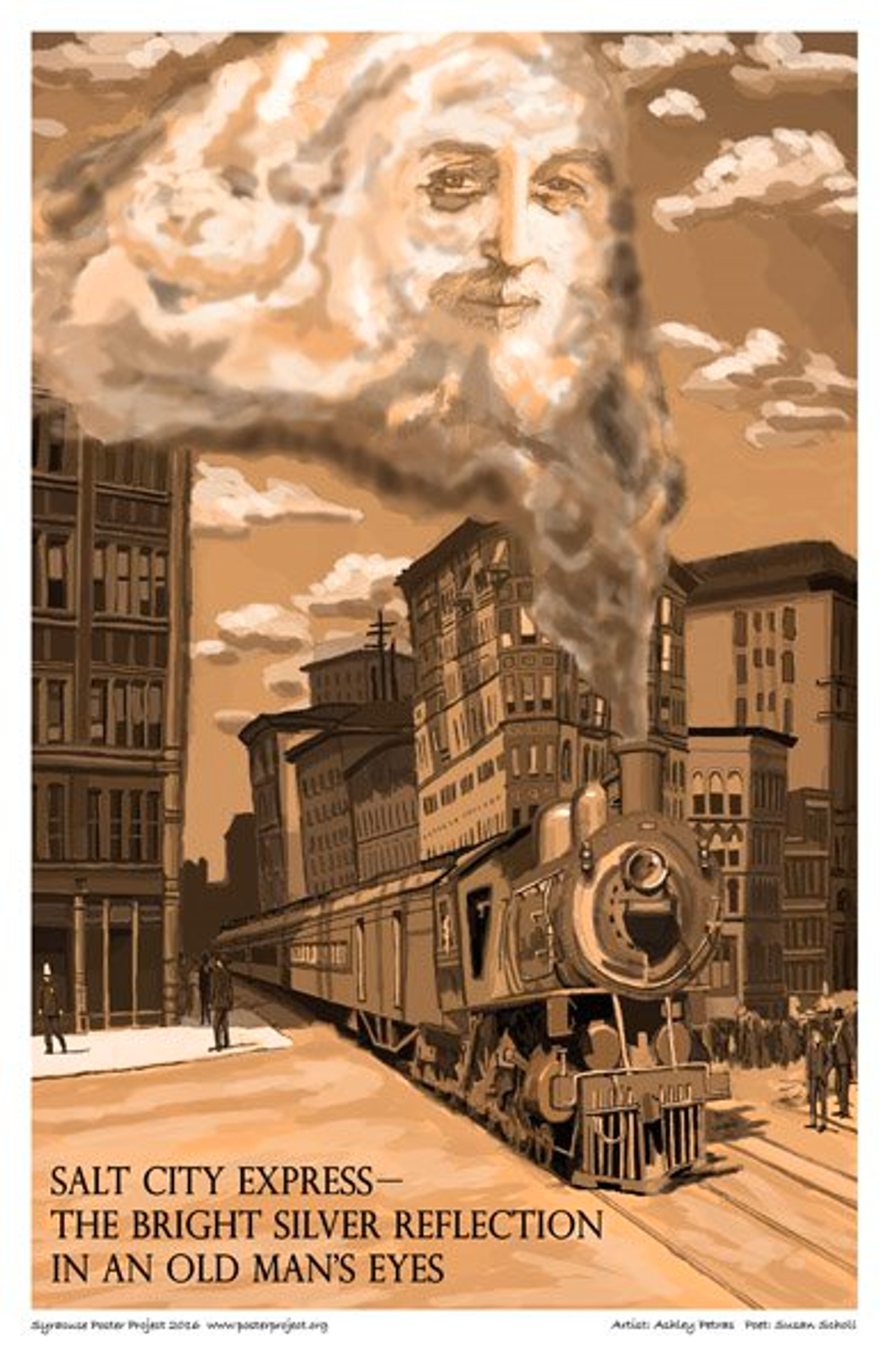Poster Image

Item#: 2016SYR15
Purchase Details
11x17-inches, printed on heavy weight (100-pound) Hammermill cover paper. We package each print with a piece of chipboard in a clear plastic sleeve.
You also receive…
An information page with photos of the artist and poet, and hand-written comments from each.
A framing coupon, good for a 20 percent discount at Edgewood Gallery, a custom frame shop at 216 Tecumseh Rd., Syracuse.
Medium- and large-format posters are available by custom order. Contact us for details.
Poem Inspiration Location
Salt City Express
poster information
Description
Salt City Express”
the bright silver reflection
in an old man's eyes
Magical or mundane, trains were once a necessity. A train ride to New York City, east and then south, with the Palisades on the right and the Hudson River on the left, is hypnotic for me. Watch a movie from the '40s or '50s to see the trains depicted, the bustle recreated.
Hearing a train whistle off in the distance on a dark night reminds me of being a kid, staying with my grandparents. It was always a familiar, comforting echo. Writing haiku for over 15 years has helped me to see things, to really observe what is going on around me. There are still trains everywhere, moving all the time. If you listen carefully, you'll hear them around Syracuse, even at night.
I was drawn to this haiku because it seemed like I could really tell a story about it. The haiku was very mysterious and had a sense of nostalgia to it. I love history as well so I thought that it would be interesting to look into the history of Syracuse's Railroads. I found a lot of great reference of the train going through the downtown area. I learned that Salt was a major export for the city of Syracuse, which is why Syracuse is often called “Salt City.” I decided to create a scene of the train going through the downtown area to show this part of the city's history. I also wanted to include the old man's face in the smoke cloud as a symbol of time and memory. I wanted his gaze to show that he is looking back at the past but also that he is looking forward to how far the city of Syracuse has come through industrial advances.

